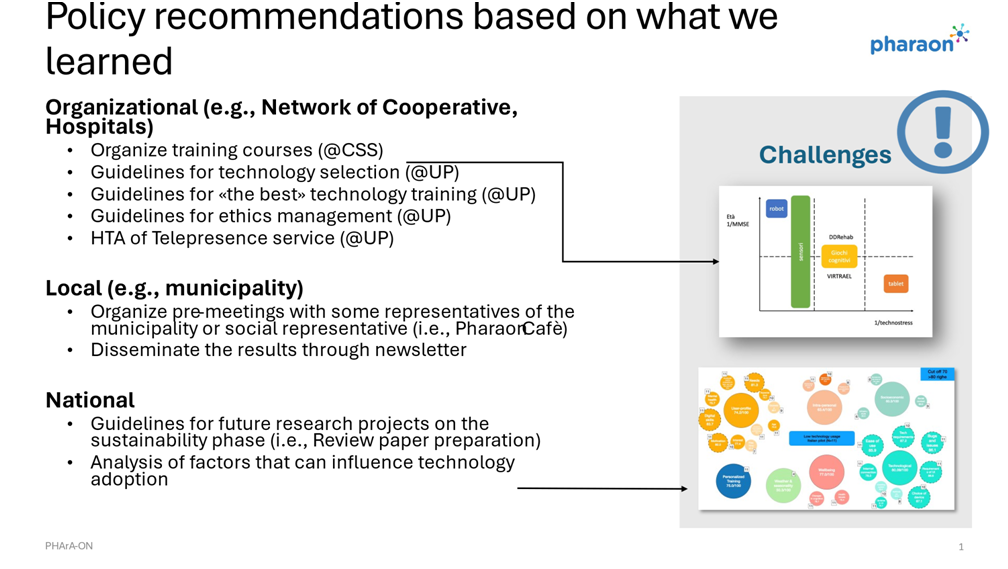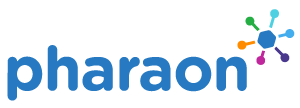
19 Mar Italian Pharaon pilot proposes recommendations to Italian policy makers
Based on the findings and lessons learnt from the Italian Pharaon pilot, a number of policy recommendations for Italian policy makers were elaborated. The plan is to discuss and brainstorm involving main institutional representatives before the end of the project. The Italian Pharaon pilot partners intend to make the lessons learned available to policy makers and discuss together how to integrate them into the challenging national path of digitalisation and social-health services, supported and funded by National Recovery and Resilience Fund.
Pharaon confirms that the introduction of assistive technologies can improve the quality of life of older adults, contributing to an active and independent aging, and supporting the work of social and health workers. In order to start the reflection, some recommendations resulting from the experience gained over these four years are listed below:
- Customization of Solutions: Identify solutions suitable for the specific needs of each individual user. Social, cultural and health factors influence the usability of devices, therefore it is essential to identify a range of solutions that cover different interaction capabilities of users.
- Multidisciplinary Integration: Involving professionals from different disciplines (psychologists, social workers, health and social workers, technologists) in the design and implementation of assistive technologies. This approach ensures an holistic vision and more effective results of the intervention.
- Training: Investing in training professionals, family members and older adults about the use of assistive technologies and, in general, to improve digital skills. Learning to use devices increases confidence and decreases stress.
- Privacy and Security: Ensuring data privacy and security is essential, but it is not enough. It is necessary to establish guidelines for the acquisition of informed consent, to make users aware of the use made of their data.
- Cross-Sector Collaboration: Encourage collaboration between public and private sectors, universities, non-profit organizations, and industry. This synergy can accelerate the innovation and dissemination of assistive technologies.
- Continuous Evaluation: Monitor the effectiveness of assistive technologies through continuous evaluations. It is necessary to promote continuous research on outcomes and the adoption of best practices.

